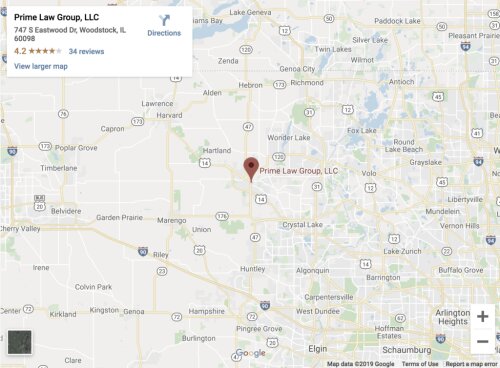Best New Business Formation Lawyers in Alabama
Share your needs with us, get contacted by law firms.
Free. Takes 2 min.
Or refine your search by selecting a city:
List of the best lawyers in Alabama, United States
About New Business Formation Law in Alabama, United States
Starting a new business in Alabama means navigating a range of legal requirements and processes to ensure your venture is compliant with state and local regulations. New business formation law in Alabama involves choosing the most suitable business entity, such as a sole proprietorship, partnership, limited liability company (LLC), or corporation. It also includes registering your business, obtaining necessary licenses and permits, complying with tax obligations, and understanding employment laws. Whether you are launching a small, family-owned operation or a larger company, understanding the legal landscape is essential to starting and growing a successful business in Alabama.
Why You May Need a Lawyer
While many entrepreneurs start out handling some legal matters on their own, there are numerous situations where the guidance of an experienced business attorney is crucial. A lawyer can help you:
- Choose the best legal structure for your business, taking into account liability, taxation, and management needs.
- Draft or review partnership agreements, shareholder agreements, or operating agreements.
- File the necessary documents with the Alabama Secretary of State and other agencies correctly and efficiently.
- Understand and comply with state and federal labor laws if you plan to hire employees.
- Prepare contracts for suppliers, clients, or independent contractors.
- Navigate regulatory requirements in your industry or locality.
- Protect your intellectual property, such as trademarks or copyrights.
- Advise on liability issues and risk management.
- Address potential conflicts among business partners, investors, or employees.
A business attorney can safeguard your interests from the start and help you avoid costly mistakes as your company grows.
Local Laws Overview
Alabama has specific legal requirements for new business formation. Key aspects include:
- Business Structure Choice: You can form different types of business entities, such as sole proprietorships, partnerships, LLCs, S corporations, or C corporations.
- Registration: Most business entities must register with the Alabama Secretary of State. Sole proprietors and partnerships using a trade name must register for a business privilege license at the county level.
- Business Privilege License and Tax: Most businesses are required to obtain a business privilege license from the local county Probate Judge or License Commissioner. Alabama also imposes a business privilege tax on certain business entities.
- Employer Responsibilities: If hiring employees, you must register for state tax withholding and unemployment insurance, verify work eligibility, and comply with Alabama and federal labor laws.
- Permits and Zoning: Depending on business activities and location, you may need local permits, specialized licenses, and to comply with zoning ordinances.
- Annual Reporting: LLCs and corporations must file annual reports and pay applicable fees.
- Operating Agreements: While not required by law for LLCs, having an operating agreement is strongly recommended to set clear guidelines for business operations and ownership structure.
Proper compliance with these local laws helps establish your business as a legal entity and protects you from penalties or legal disputes.
Frequently Asked Questions
What business structures can I choose from in Alabama?
You can form a sole proprietorship, general partnership, limited partnership, limited liability company (LLC), S corporation, or C corporation in Alabama. Each has different advantages, requirements, and implications for taxes and liability.
How do I register my business name in Alabama?
Business names must be distinguishable and registered with the Alabama Secretary of State when forming LLCs or corporations. Sole proprietors and partnerships who use a fictitious or trade name must register at the county level and may also file for a state-level business license.
Do I need a business license to operate in Alabama?
Most businesses need a business privilege license from the local county Probate Judge or License Commissioner. Certain professions and activities may require additional state or local permits.
What is the Alabama Business Privilege Tax?
The Alabama Business Privilege Tax is an annual tax that applies to most business entities, such as LLCs and corporations, for the privilege of doing business in the state. Returns and payments are typically due by the same date as your federal tax return.
How do I get an Employer Identification Number (EIN)?
You must apply for an EIN, also known as a Federal Tax Identification Number, through the Internal Revenue Service (IRS). This number is required if you have employees or if your business entity is a corporation or partnership.
Are operating agreements required for LLCs in Alabama?
Operating agreements are not legally required for Alabama LLCs, but they are strongly recommended to clarify the management and ownership structure, as well as the rights and responsibilities of members.
What steps do I need to take to hire employees?
You must comply with federal and state employment laws, including verifying work eligibility, registering for Alabama state tax withholding, purchasing workers’ compensation insurance if required, and following wage and hour laws.
Do I need to register for sales tax in Alabama?
If your business sells tangible goods or certain taxable services, you must register for an Alabama sales tax permit with the Alabama Department of Revenue and collect sales tax on applicable transactions.
Can I form a business online in Alabama?
Yes, most business formations and filings, including registering an LLC or corporation, can be completed online through the Alabama Secretary of State's website.
What pitfalls should I avoid when starting a business in Alabama?
Common mistakes include failing to register properly, neglecting required licenses or tax registrations, not having solid contracts or agreements, overlooking zoning laws, and misunderstanding liability risks. Consulting a business attorney can help you avoid costly errors.
Additional Resources
If you are forming a business in Alabama, the following resources and organizations can be extremely helpful:
- Alabama Secretary of State - Business Services Division
- Alabama Department of Revenue - Business Taxes
- Local County Probate Judges or License Commissioners' Offices
- Small Business Development Centers (SBDC) in Alabama
- Alabama Small Business Commission
- United States Small Business Administration (SBA) - Alabama District Office
- Alabama State Bar - Lawyer Referral Service
These resources offer guidance on registration, licensing, business planning, and finding legal or financial assistance.
Next Steps
If you are ready to form a new business in Alabama, start by outlining a clear business plan and determining which legal structure best meets your needs. Gather information about any necessary state or local licenses and tax registration requirements. While some filings can be completed independently, consider consulting with a qualified business attorney, especially if your business has multiple owners, will hire employees, or requires complicated contracts or regulatory compliance. An attorney can ensure that all your documents are in order, your liability is minimized, and you are well positioned for success. If you are not sure where to begin, contact your local Small Business Development Center or the Alabama State Bar for guidance and lawyer referrals.
Lawzana helps you find the best lawyers and law firms in Alabama through a curated and pre-screened list of qualified legal professionals. Our platform offers rankings and detailed profiles of attorneys and law firms, allowing you to compare based on practice areas, including New Business Formation, experience, and client feedback.
Each profile includes a description of the firm's areas of practice, client reviews, team members and partners, year of establishment, spoken languages, office locations, contact information, social media presence, and any published articles or resources. Most firms on our platform speak English and are experienced in both local and international legal matters.
Get a quote from top-rated law firms in Alabama, United States — quickly, securely, and without unnecessary hassle.
Disclaimer:
The information provided on this page is for general informational purposes only and does not constitute legal advice. While we strive to ensure the accuracy and relevance of the content, legal information may change over time, and interpretations of the law can vary. You should always consult with a qualified legal professional for advice specific to your situation.
We disclaim all liability for actions taken or not taken based on the content of this page. If you believe any information is incorrect or outdated, please contact us, and we will review and update it where appropriate.
Browse new business formation law firms by city in Alabama
Refine your search by selecting a city.















